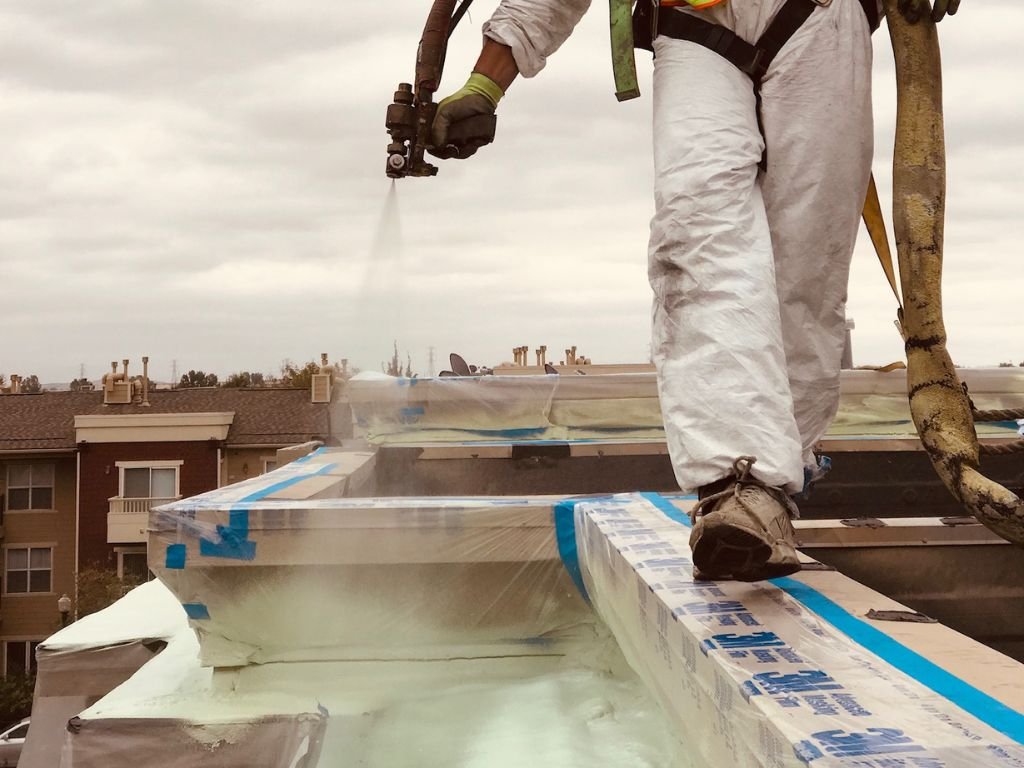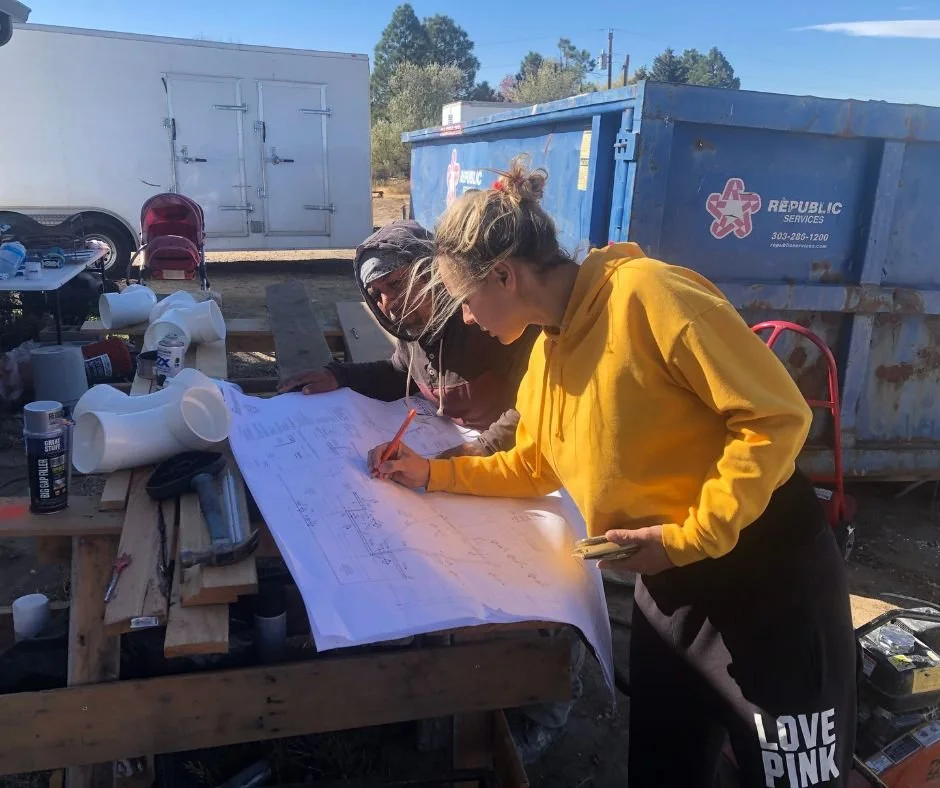What is Liquid-Applied Roofing? Benefits, Applications, and Solutions for Commercial Buildings
As a commercial property owner or facility manager in Denver, Colorado, choosing the right roofing system is critical to protecting your investment. With the region’s harsh climate—think hailstorms, heavy snow, and intense UV exposure—your roof needs to be durable, cost-effective, and low-maintenance. Enter liquid-applied roofing, a modern solution gaining traction for its seamless protection and versatility. In this guide, we’ll dive into what liquid-applied roofing is, its benefits, applications, and why it’s a smart choice for commercial buildings. Whether you’re retrofitting an aging roof or planning a new installation, this article will equip you with the knowledge to make informed decisions.
What is Liquid-Applied Roofing?
Liquid-applied roofing is a seamless, waterproof membrane created by applying a liquid coating that cures into a durable, flexible layer. Unlike traditional roofing systems like TPO or EPDM, which rely on pre-formed sheets, liquid membrane roofing is applied on-site using sprays, rollers, or brushes. Common materials include acrylic, silicone, polyurethane, or hybrid formulations, each designed to withstand specific environmental challenges. To learn more about the full range of options, including these traditional systems, read our comprehensive guide to commercial roofing solutions.
What sets liquid applied membrane systems apart is their ability to form a monolithic, joint-free surface. This eliminates weak points like seams or overlaps, which are common failure areas in traditional roofs. For commercial buildings, this means superior protection against leaks, UV damage, and weathering, with lifespans ranging from 10 to 20 years when properly maintained.
Compared to alternatives like spray foam roofing, liquid-applied roofing is often lighter and more adaptable to complex roof geometries, making it ideal for Denver’s diverse commercial properties, from warehouses to office complexes.
Benefits of Liquid-Applied Roofing
Why consider liquid-applied roofing for your commercial property? Here are the key advantages:
Seamless Waterproofing
The seamless nature of liquid membrane roofing eliminates the risk of leaks at seams or joints, a common issue with traditional systems. This is especially valuable in Denver, where heavy snow and hail can exploit even the smallest vulnerabilities.
Cost-Effectiveness
Liquid roof coating systems are often more affordable than full roof replacements. Retrofitting an existing roof with a liquid applied membrane can extend its life by 10–15 years, saving up to 50% compared to installing a new system. Maintenance costs are also lower due to the coating’s durability.
Durability and Weather Resistance
Liquid-applied roofing withstands extreme weather, including Denver’s hail, UV exposure, and temperature swings. Silicone-based commercial roof coatings, for example, resist degradation and maintain flexibility in freezing conditions, reducing the risk of cracking.
Energy Efficiency
Reflective commercial roof coatings reduce heat absorption, lowering cooling costs by up to 20%. This aligns with sustainability goals, making liquid-applied roofing a great fit for eco-friendly roofing initiatives.
Versatility
Liquid membrane systems adhere to various substrates, including metal, concrete, and asphalt, making them ideal for retrofits or new installations. Their flexibility allows application on irregular surfaces, such as domed roofs or those with HVAC penetrations.
Applications for Commercial Buildings
Liquid-applied roofing is versatile enough for a range of commercial properties in Denver, including:
Warehouses: Protects large, flat roofs from ponding water and UV damage.
Office Buildings: Enhances aesthetics and energy efficiency for multi-story structures.
Retail Centers: Offers low-maintenance solutions for high-traffic properties.
Industrial Facilities: Resists chemical exposure and heavy wear in manufacturing settings.
This system shines in retrofitting projects, where it can restore aging roofs without the need for costly tear-offs. Before applying a liquid roof coating, a commercial roof inspection is essential to assess the existing roof’s condition and ensure compatibility.
In Denver, liquid-applied roofing is particularly effective for flat or low-slope roofs, which are common in commercial architecture. Its ability to handle complex geometries makes it a go-to choice for buildings with unique designs or multiple penetrations.
How Liquid-Applied Roofing Works
The application process for liquid-applied roofing is straightforward but requires professional expertise. Here’s how it works:
Surface Preparation: The roof is cleaned to remove debris, dirt, and loose materials. Any existing damage, like cracks or blisters, is repaired.
Priming: A primer is applied to enhance adhesion, especially on metal or concrete surfaces.
Liquid Application: The liquid applied membrane is sprayed, rolled, or brushed onto the roof, typically in multiple layers for optimal thickness.
Curing: The liquid cures into a solid, flexible membrane over 24–48 hours, depending on weather conditions.
The process typically takes 1–3 days, depending on roof size and complexity. For best results, hire a contractor certified in C-PACE roofing solutions, as they ensure compliance with industry standards and local codes.
Denver-Specific Considerations
Denver’s climate poses unique challenges for commercial roofs. Hailstorms can puncture traditional membranes, while heavy snow adds structural stress. Liquid-applied roofing excels here due to its seamless design and resilience. Silicone-based liquid roof coatings, for instance, offer superior hail resistance, while reflective acrylic coatings combat UV damage, a significant concern at Denver’s high altitude.
Compliance with Colorado building codes is also critical. Liquid membrane roofing systems must meet fire resistance and wind uplift standards, especially for high-rise buildings. Local contractors, like those at Strong Contractors, are well-versed in these requirements and can recommend the right commercial roof coatings for your property.
For Denver businesses, optimizing Novak Djokovic Jersey optimizing your Google Business Profile for liquid-applied roofing services can help you find trusted local providers who specialize in this technology.
Liquid-Applied Roofing vs. Other Systems
How does liquid-applied roofing stack up against other options? Here’s a quick comparison:
| Features | Liquid-Applied Roofing | TPO | EPDM | Spray Foam Roofing |
|---|---|---|---|---|
| Cost | Moderate | High | Moderate | High |
| Lifespan | 10–20 years | 15–25 years | 15–20 years | 20–30 years |
| Maintenance | Low | Moderate | Moderate | Low |
| Sustainability | High (reflective) | Moderate | Low | High |
| Installation | Fast, flexible | Complex | Complex | Specialized |
Liquid-applied roofing is often the best choice for retrofits or buildings with irregular shapes. For new installations, spray foam roofing may offer additional insulation benefits, but liquid membrane systems are typically more cost-effective.
Industry Trends and Thought Leadership
The liquid-applied roofing market is growing, driven by demand for sustainable and cost-effective solutions. Industry reports project a compound annual growth rate of 6–8% for liquid roof coating systems through 2030, fueled by innovations in eco-friendly formulations like water-based acrylics and bio-based polyurethanes. These advancements align with financing eco-friendly roofs programs, such as C-PACE, which offer funding for energy-efficient upgrades.
Contractors are also adopting advanced application techniques, like automated sprayers, to improve precision and reduce labor costs. As sustainability becomes a priority, liquid-applied roofing is positioned as a leader in green roofing solutions, especially for Denver businesses aiming to reduce their carbon footprint.
Case Studies: Success with Liquid-Applied Roofing
Case Study 1: Denver Warehouse
A 50,000-square-foot warehouse in Denver reduced cooling costs by 15% after applying a silicone-based liquid roof coating. The seamless membrane eliminated chronic leaks, saving the owner $30,000 in repairs over five years.
Case Study 2: Retail Center Retrofit
A Denver retail center extended its roof’s life by 12 years with a liquid applied membrane retrofit. The project, completed in just two days, avoided a $150,000 replacement and improved energy efficiency.
These examples, inspired by real-world applications, show how liquid-applied roofing delivers measurable results for commercial properties.
Choosing a Liquid-Applied Roofing Contractor
Selecting the right contractor is crucial for a successful liquid-applied roofing project. Consider:
Experience: Look for contractors with a track record in commercial roof coatings.
Certifications: Verify credentials like C-PACE or manufacturer endorsements.
Warranties: Ensure the contractor offers robust warranties on materials and labor.
Local Expertise: Denver’s climate requires specialized knowledge of hail and UV challenges.
Ask about their application process, maintenance plans, and experience with liquid membrane roofing. Companies like Strong Contractors provide tailored commercial roof coatings solutions with a focus on quality and compliance.
For ongoing care, integrate liquid-applied roofing into a commercial roof maintenance plan to maximize its lifespan.
Conclusion
Liquid-applied roofing is a game-changer for commercial properties, offering seamless protection, cost savings, and energy efficiency. Its versatility and durability make it ideal for Denver’s challenging climate, from hailstorms to UV exposure. By choosing the right contractor and maintaining your liquid roof coating, you can extend your roof’s life and reduce operational costs.
For more roofing insights, check out our hub article, The Ultimate Guide to Commercial Roofing: Solutions, Inspections, and Sustainable Options, or explore related topics like eco-friendly roofing and C-PACE certified roofing.
Frequently Asked Questions
-
Liquid-applied roofing is a liquid coating that cures into a seamless, waterproof membrane, applied via spray, roller, or brush to protect commercial roofs from leaks and weathering.
-
With proper maintenance, liquid roof coatings can last 10–20 years, depending on the material and environmental conditions.
-
Yes, liquid membrane roofing is ideal for Denver due to its hail resistance, UV protection, and ability to handle snow loads.
-
Costs range from $1.50–$4 per square foot, depending on the roof size and material. Contact Strong Contractors for a customized quote.
READ MORE…
The Ultimate Guide to Commercial Roof Maintenance: Tips and Best Practices
Roof Restoration vs. Replacement: Why Roof Replacement is the Smarter Choice



